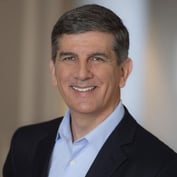Clients of RIAs want to know more now about the health of their RIA’s custodian, Tibergien says, something that may not have commonly come up before. But just about every client knows by now about the Madoff scandal, and while they may not understand just what a custodian or an auditing firm does, they do get the fact that there was little outside or third-party light shed on the operations of Bernard L. Madoff Investment Securities LLC’s broker/dealer or his RIA, which dealt with clients. It has been widely reported that Madoff’s firm produced its own client statements and did not have a third-party custodian. In addition, they reportedly used a very small accounting firm.
While Tibergien says there are many “advisors who produce their own statements,” obviously a statement from a third-party custodian or clearing broker can add a great deal of assurance and value in light of what allegedly happened at Madoff’s firm.
Overall, Pershing Advisor Solutions’ “clients remain confident about their approach to investing,” says Tibergien, but “less so” about business management and overhead. The malaise that has afflicted the global economy is affecting registered investment advisors as well. But it’s not simply problems with the markets and the economy that are issues for RIA firms; the scandals that have come to light over the past couple of months are making RIAs redouble their efforts to detect wrongdoing within their own firms. For that, he says, one of the things PAS clients are taking advantage of is Pershing’s anti money laundering (AML) technology–the same kind of technology, Tibergien notes, that was the undoing of “Client Nine,” better, if briefly, known as New York State Governor Elliot Spitzer.
Something else that small firms face in difficult times is a higher risk of “bad acts during a bad market,” Tibergien says, as employees or principals feel the stress of their own financial situation. An employee who is let go might retaliate, potentially sabotaging their former firm. That’s just one example of the “vulnerability of small firms,” he explains.








 January 20, 2009 at 07:00 PM
January 20, 2009 at 07:00 PM










